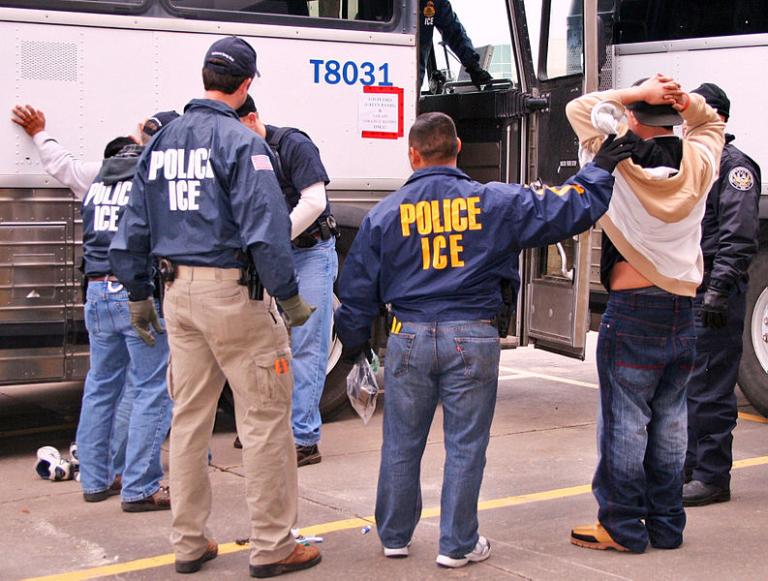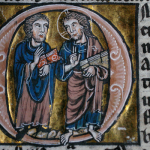
20 Then the Lord said, “The outcry against Sodom and Gomorrah is so great and their sin so grievous 21 that I will go down and see if what they have done is as bad as the outcry that has reached me. If not, I will know.”
22 The men turned away and went toward Sodom, but Abraham remained standing before the Lord.[b] 23 Then Abraham approached him and said: “Will you sweep away the righteous with the wicked? 24 What if there are fifty righteous people in the city? Will you really sweep it away and not spare[c] the place for the sake of the fifty righteous people in it? 25 Far be it from you to do such a thing—to kill the righteous with the wicked, treating the righteous and the wicked alike. Far be it from you! Will not the Judge of all the earth do right?”
26 The Lord said, “If I find fifty righteous people in the city of Sodom, I will spare the whole place for their sake.”
We know that Abraham continues on by step by step, and rather tediously (especially as a Sunday reading) bargaining God down to accepting not destroying the city of Sodom if there are only 10 righteous people in the city, though even this threshold wasn’t met and the city was destroyed after all. And the theme of the homily you’ll hear may or may not be something about Abraham daring to bargain with God and how we shouldn’t be afraid to ask for things from God. But it’s interesting how Abraham’s negotiation was not the “typical” norm of “make far-reaching demands in order to meet in the middle.”
Now consider the demands being made by Cupich and other American bishops and immigration activists generally speaking. Their operating principle is “no one should be deported, ever” and “everyone has a right to come here, morally even if not legally.” They concede that deporting criminals might be OK, but only in rare circumstances if their crimes are harsh enough and the conditions of their deportation are humane enough, such as their home country being willing to accept them and if they have lived in the US for a short enough time and only as an adult, so that they can re-integrate easily. (Heck, not long ago in the Washington Post there was an article sympathetically portraying as a suffering deportee a man who was a pot dealer and deported to Jamaica after serving his prison sentence, where part of the hardship he endured was the social stigma of having been jailed in the US.)
This is clearly absurd.
So many people are tripping over themselves to be the ones fighting Trump with the very most righteous fury.
Why can someone like Cupich not do the sensible, Abraham-like thing and ask for mercy?
No, I am not saying that Trump is God. But the principle of it is the same. Cupich has very weak cards to play, his best card is moral suasion, and absurd demands don’t persuade someone to come to a “moral middle ground.”
He needs to start by acknowledging that these immigrants have no legal right to live in the U.S., only rarely meet the political-persecution conditions for asylum (and the system has been so abused it’s no longer capable of achieving its goals), and that many of them have committed crimes such as identity theft, driving without licenses/insurance, etc., even if not more heinous crimes, and often the “hard cases” of long-time residents are being deported because they have standing deportation orders, even if under a previous set of bureaucrats, those deportation orders were not implemented.
But then he needs to address Trump (preferably without the smug artificially-pastoral tone he generally has): “Would you, out of mercy, grant residency to those illegal immigrants who have been here for decades, have learned English, and are able to support themselves or receive family support, without welfare?”
Not for everyone. Not for all migrants except criminals, though perhaps over time Cupich and others could bargain, Abraham-like, for a widened group of eligible people.
Perhaps, if I were to speak of Pritzker rather than Cupich, there might be some further negotiation: a commitment that as long as the Trump administration provides waivers for longtime residents, even for those who would otherwise be the first to go because the “due process” has been completed and they have unenforced deportation orders, the state will resume cooperation with ICE, eliminate housing and other subsidies for recently-arriving migrants, etc.
But right now many elected officials, activists, and church leaders are playing a game of “chicken.” Or maybe their decisions could be described as keeping these most sympathetic cases as hostages, knowing that they could advocate for a limited amnesty but would rather they be the victims who could be used to garner public support for a wide-scale amnesty. Or are they perhaps so convinced that it is morally wrong to deport anyone, that they believe it would in fact be nearly sinful on their part to advocate for a partial rather than complete amnesty? Is Cupich unable to more away from his extreme demand because he cannot comprehend that it is unreasonable? Is he truly convinced that church teaching compels universal amnesty and open borders and that Catechism statements to the contrary are really merely stating the permissibility of having an orderly process for unlimited immigration? Would he even, in the event of a legalization program for long-time residents, deem false affidavits and fraudulent “proof” of longtime residency, to be morally good, and support his priests being witnesses for people unknown to them, in the name of enabling them to stay in the U.S.?
Inquiring minds want to know.







